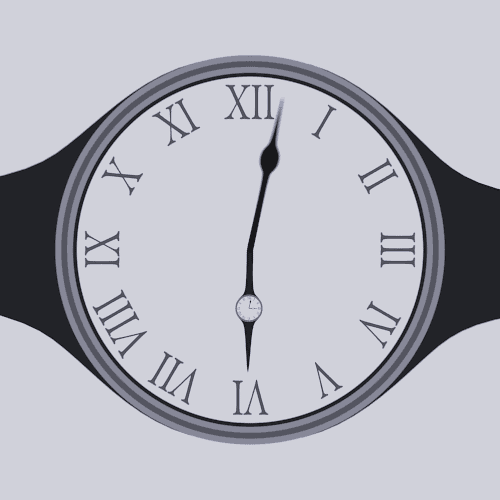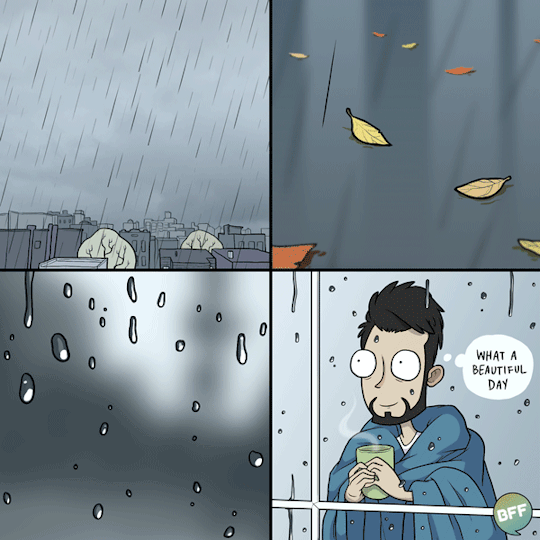The name's Michael. College student, computer engineering, unique story with a bunch of interesting little details. You have found a piece of me here. Keep that in mind, but feel free to leave questions and comments; I have found that outside thoughts can be ever so inspiring. See you around.
Don't wanna be here? Send us removal request.
Text
What is Love?
I recently started wondering if I even know how to love someone. Have I ever really loved someone other than myself? Do I even love myself? Love has so many names and so many forms, what is real and what is just the result of a cocktail of hormones and circumstances?
Is it love when you give something to another without expecting anything in return? Is it love when you do something for another without expecting anything in return? Can love exist alongside expectation and selfish interest or are they diametrically opposed?
What is the difference between selflessness and love? Is selflessness just an attribute of love? Can you have love while being selfish?
What is romance, sentimentalism, lovesickness, and infatuation? Is it love or just an enticing façade?
What causes love? What encourages love to happen? Can you have love without action or does it always manifest itself eventually? Can you choose to love first or does love result from selfless words and actions?
I feel like I’m thinking in circles. I wonder if I even know how to love someone else. What if I’m just doing everything kind just for my own selfish sense of charity? What if I don’t really love anyone else? Do I even love myself?
When I was younger, my crisis was determining who I am, what I like and dislike. I formed a fairly strong identity right away, and while I always cared for those around me, did I ever really form strong bonds built on love? Perhaps I did, or perhaps I just lived the way that was expected and went with the flow.
Now that I am older and have achieved almost everything I set my eye on, I have started looking for what is really important. After many soul searches, prayers, and Bible studies, It seems like love is it. Love of God, self, and others. Now that I know what is important, I have no idea how to “achieve” it. I wonder if I even know how to love another person properly.
A lot of this really stems from my recent relationship. I was so certain I loved her, and then, all of a sudden, I lost interest. I struggled for days and weeks to figure out why. Was it compatibility, looks, some behavior, or some inadequacy of my own that I was looking for her to cover? Our compatibility was pretty good; we have a lot in common. There are a few areas where we don’t align in interests, but I suppose that’s where you could learn to compromise and become interested in what they are interested in--nothing fundamental was wrong there. We definitely moved too fast and that likely burned it out quickly...but man...what if? I suppose the biggest thing that bothered me was the she is perhaps a little less outgoing than I am. For the longest time I have been looking for a talker, a social butterfly so to speak. I thought that maybe, if they have the right fundamental values, that part might not matter as much. But now I’m just left wondering again. Every time I see her, old feelings rekindle, and I feel like I should get back with her, but then I realize that if I can’t be sure about that relationship then it would be wrong of me to put her through that kind of trouble again and I pause. Would I feel like I’m making the wrong choice with her? Would I feel like I’m settling? Do I like her friends? The way she lives her life right now? Her family relationship?
One thing that changes things now is my focus on God. I don’t want a girl who half-way believes in God. Does this mean my preferences have changed or that I am just pickier? Perhaps a little of both. I know the Godly woman of Proverbs does exist and that she also has a personality and qualities I would love easily--I guess I’m just worried that I will miss the boat on finding that person and they will be snatched up, or that I will be insufficient and will not attract her either.
Perhaps I should just play the field--go on dates and just get to know people. I kind of dislike dating culture though--it’s so focused on self and hurts so many people--it arguably creates more hurt than help in most cases. There are good types of dating culture and its not like meeting people is a bad thing. Perhaps the best thing I can do is just to work quickly. Maybe getting to know more people sooner will keep me from hurting good people in the future.
Another approach is to just forget about it all and live well. Work on my health in all aspects (mind, body, spirit), establish myself (in living situation especially), and keep an eye out for the ones that really catch my attention. I’m so tired of waiting, but maybe I’m not in quite the right spot for a relationship right now anyways.
I suppose I haven’t really forgotten how to love, I’m just licking my wounds after being caught up in “lovesick sentimentalism”. I’m stunned because I allowed infatuation to so easily take the place of love. I forgot what to do after--once infatuation fades. Love is patient, so perhaps I just need to trust God and wait with him. I want to follow His lead because I clearly have no clue what I’m doing on my own. I need to put God first a and trust that “all these things shall be added unto you”. I need to love more like Him and learn more about that everflowing joy and peace. I realize now that I have been using media to find peace, when I should be looking to the source of peace, hope, joy and love. There is a time for mourning, but that time is not now. I need to find joy in him and keep hold of that joy.
1 note
·
View note
Text
Aimless
I’ve made it. I’ve done it. I’ve reached my goals. Did I really want to reach team?
I am struck by the futility of life and action. What’s the point? Why do I try? What am I trying to do? Perhaps this is a mini-mid-life crisis brought on by COVID, or perhaps it’s something that has been in the back of my mind once I saw what the result of my goals actually looks like.
Do I want to work on optimization code to make robots marginally better at processing something when it will likely be overtaken by advancements in processors in the near future? Do I want to work on optimizing some AI system whose performance will easily be overtaken by the latest paper? Do I want to spend all my time building some advanced architecture which will most likely be discarded like all the rest in the future? What’s the point?
For the longest time my goal was to learn all the skills I thought I needed to do robotics. I have learned a lot of them--programming, AI, 3D modelling, 3D printing, electronics, some machining, some control systems...and yet, something is still missing. I work at NASA and I am more unhappy about the work I am doing than I have been in a while. Maybe this is just the nature of research work--we spend a whole lot of time trying to do something only for it ultimately to be something thrown away. Only the 0.1% of research that makes breakthroughs is ultimately useful to the world.
Why am I unhappy? I don’t enjoy the work I am doing. I don’t like my work environment. What’s wrong with my work? ... Well my whole reason for working with robots was to see them actuate in real life. I don’t want to be pushing algorithms behind the scenes and never see my work doing something. I’m building up a toolset that will likely only ever be used by me and perhaps one or two others. Worse, I’m making marginal improvements to a system whose performance does not seem to be getting any better than my initial results despite all the time and effort I have put into it.The fact that I don’t get to work in person with anyone or with any actual robot is soul crushing. This ties in with the work environment--working alone sucks. Telework is nice once in a while, but I think actually going in and working alongside people is so much more motivating, so much more satisfying. It’s easier to balance my time and I gain a lot more knowledge just by being in the vicinity of smart people and hearing about their work.
I have difficulty feeling motivated working on my own stuff of my own volition unless there’s some particular “cool” aspect that I really enjoy--even then, there’s usually a lull where the sheen fades and I just have to keep trudging on in order to finish the job. I guess I enjoy that part right after starting where I start to figure things out and I get a result, but not the part where I polish it into something reusable and desirable for others. The prototyping stage is the most fun part of any project.
Unfortunately the reality is that my work is going to be like this for a while longer. Maybe even a lot longer based on the way this quarantine is shaping up. So how can I make it work? How can I adapt to these shitty circumstances while still being happy, healthy, and productive?
General wisdom says that a mindset of gratitude is the key. Perhaps it’s true that I haven’t been grateful enough. I am at one of the top universities in the world working with some of the greatest minds. I have plenty to eat, stable finances, a patient family, and friends I can call if I really feel the need. I’m not worried about survival at this point, only about fulfillment--many in the world cannot say this. There are probably 1000′s if not millions of people who would love to be in my position.
I am grateful for all these blessings, but I also feel almost soul-crushingly responsible because of them. Like if I don’t do something great, I am betraying all those who have raised me up to this point. If I waste my time I am insulting those that have sacrificed for my sake. It feels like too much sometimes, and I just want to give up, to go on an extended vacation, and just be free for a while. The thing is, I feel obligated to work 40 hrs a week, and if I don’t do that, I’m worried that I am robbing the people paying me. One could argue that my time is more valuable, that I’m being underpaid, or that I’m more efficient than the average, but this doesn’t change the fact that I made a contractual agreement to put in the time.
So what do I do? How do I demonstrate my gratitude? How do I stay productive with work while also finding fulfillment? Is there room for me to work on my own projects that I enjoy more? Do I even enjoy my own projects? What do I want to do? The question of goals comes to the forefront of my mind again. Perhaps an overarching goal and provide an underlying drive to everything I do.
Do I want to go into research? My current view of research in my field is that I would spend a whole lot of time on my own working on something of debatable value and unproven possibility anchored to the underlying goals of my selected PI. The other possibility is that if I had a strong enough idea and open enough PI, I could probably shape my work to something I believe would work, find a group of people that I believe are capable, and then use that as a launching pad for building a company, maybe not even completing my PhD.
What am I good at? What do I like? I am good at building and understanding large systems/frameworks/architectures. I have a variety of shallow skills, but my only real specialization is software engineering. My math is OK, physics is decent, electronics is decent, 3D modeling, fabrication, and mechanical mindset is mediocre, AI is okay, though I doubt I would make my own network or algorithm there, and my leadership skills are alright. I am also decent at teaching (or at least patient enough to learn to do it well). I feel I would thrive in an environment where I get other people started with something new and they take it to its ultimate fruition. Either that, or leading a small team after getting a prototype out. System architect would be okay, though I would like to work with hardware too. Really what I want is to replicate the environment I usually see in maker spaces and robotics clubs when people are working on the same project. It’s open, free, laidback, and fun. Everyone gets to share in the successes and failures and just screw around a little bit. I suppose the question is how I can replicate that kind of environment in the real world while still making enough money to support everyone involved? A startup seems like the most natural conclusion. Either one I start or one I find that has the culture I like. I think the main thing is I don’t really want to work on projects alone or with people who have significantly less investment.’
Aside: The VR project I did was really cool in terms of team structure. It sort of fell apart due to COVID, but if we had had the space and in-person time I would have liked, it could have been much better; 3/4 of the team was on top of things too, which was excellent (The other 1/4 was a waste of my time, but what can you do).
Okay, so the goal is to find a way to replicate the environment of robotics club somehow while making something valuable. This means that wherever I go, I need to work somewhere where collaboration is core, and not just an afterthought where each person works in a silo and then meets together after 100 hours. The Interaction Lab was kind of this, but they had the issue of unequal investment. Investment should be 2:1 at worst, and ideally it would be 1:1 for everyone. A 4:1 ratio or greater is just unproductive unless the 1 is a consultant/expert/advisor rather than a regular team member.
The question then becomes: what do I need to do or learn in order to make this work environment a reality? I suppose one option is to just go around and meet a bunch of different teams and see how they work, then attempt to join them. The other approach is I create my own team using startup money or research funds. The former option requires an idea and startup mentor; the latter requires a hypothesis and a PI. Both require me to find people that would join me. The challenge for me is likely that for me the work environment is central, but for many others it is the idea that is central. While the idea is very important, I’d say the work environment is much more important. A good team can produce value very easily with many ideas, while a poor team with a fantastic idea will struggle to produce value. That said, usually it’s the idea/vision which motivates good people to join a team. I need to make a point to keep up an idea journal again. The best way to enact my vision for a working environment is to start it myself, but to do that I need a vision people will get behind along with their trust.
So what are the other goals, and how will I adapt to COVID in the short term? Personal health is one that comes to the forefront--I’ve been living unhealthfully for a while now; my work should never be more important than my health (with some rare exceptions perhaps). Secondary to that is relationships. I realize now that sitting around until I finish XYZ before looking for a significant other is pointless. Yes, I will “lose” a fair bit of time courting someone, but ultimately it will be worth it once I find the right person, and there’s no real reason for me to hesitate. I will never reach the absolute ideal of physical performance or personal life habits, and must instead bank on love developing between flawed individuals.
COVID adaptation: For work, separating it into two working sessions per day is probably the key. Requiring any more than that does not feel sustainable or valuable right now. Focusing on hitting 8 hours every day feels like a slog when I’m by myself. I know I can accomplish enough work in less time if I’m focused. I’ll probably be more effective this way as well since i won’t burn out. After or between those working sessions, I should work on personal passion projects which I feel will make me better at something in some way. These will make me feel some sense of progress every day even if work does not provide it for whatever reason. For exercise, I just need to do it. The time of the day it occurs in doesn’t really matter, I just need to get outside and be at least somewhat active.
Aim acquired. Thanks God.
1 note
·
View note
Text
Aggressive Paranoia
Peter has a friend who sometimes assumes that other people are out to get her and is a bit paranoid. Lets call Peter’s friend Alice. Peter has another mutual friend who assumes other people are going to hurt her if she gets too close and is thus a bit secretive. Let’s call her Claire.
Claire has a problem with the way Peter acted in a certain instance. She was telling him about past relationship troubles and he thought it was funny how things turned out. She saw it as being extremely rude, and so she says something about it. Peter apologizes and tries to explain why, but this doesn’t fully satisfy Claire. Instead of telling him she wants more closure, Claire tells Alice. Alice thinks herself something of a detective, and starts searching for other instances of rudeness. Months pass. With a particular story in mind, Alice looks for any clues that might confirm Claire’s story. Inevitably Alice finds or inadvertently creates some clues about Peter’s rudeness and discusses them with Claire. Claire gathers all these instances together and starts to get angry.
With a group of friends including Alice, Claire begins talking about something that has been bothering her. Peter, seeing some humor in it, begins to smile and chuckle a little. Immediately Claire decides that she won’t take any more. She has had enough. With righteous anger, Claire lays out to Peter all the ways in which he is wrong, rude, unkind, and evil. Peter doesn’t know how to respond and so he quietly listens. Peter apologizes and thanks Claire for being open with him.
The story largely ends there, though some discussions do continue thereafter. Peter believes that Claire should not have blown up at him and he feels like he was blindsided with something completely unexpected. In some ways Peter feels it was unfair, but he holds his tongue, realizing that getting angry himself will not help anything. Claire does agree that she should not have blown up and apologizes for that.
-----------------------------------------------------------------------------------
Who is the wrong? Who is in the right? No one really; everyone has something to learn.
1. Peter should have been more sensitive about the situation in the first place. By attempting to be aware/empathetic of how Claire felt about her story, he might have stopped the situation altogether by simply holding his laughter in.
2. Claire should not have waited so long to talk to Peter after the first incident. By waiting and holding onto it, she allowed resentment to build. By tracking everything thereafter, she built a mountain out of a molehill
3. Claire should have talked to Peter soon after the first incident instead of bringing it to Alice. By including a third party she complicated a situation that might have remained simple.
4. Alice should have pushed Claire to talk to Peter about it instead of doing detective work. By involving herself in the process, she created a conspiracy of much larger proportions than the original issue.
5. Claire should not have blown up. By doing so, she made the issue even larger and included people that didn’t need or want to be involved. If Peter had reacted poorly, it could have easily ended their friendship.
1 note
·
View note
Text
Growing Apart
I recently visited a friend finishing up their Master’s in grad school. They are plagued by ridiculous overwork and schedules, hurting themselves through a serious lack of sleep and essentially paying a school in order to just take tests, not go to class, and do a ton of lab work for free. What bothered me can be divided into a few categories:
1. Lifestyle: "You have to be willing to put in enough effort to essentially take years off of your life if you want to do great things, especially if you are a non-U.S. citizen trying to make it in the U.S. No one can do anything great unless they’re willing to overwork (80+ hour work weeks!) and lead an unbalanced life for a while.”
My view: WTF!?! How is such a lifestyle ever good? Why would you subject yourself to such torture for something as useless as an accomplishment? Are you just trying to find ways to justify your current way of life which you let yourself fall into? If it’s not saving lives, what value is in it? Further, living in such a way is counter to what the Bible teaches us on how we treat our bodies, and counter to science which shows us how destructive such living is. Killing yourself to reach such fleeting heights of accomplishment seems worthless. What good does it do you to get a few hours ahead of some other human in similar pursuits? There are always other avenues, there are better and more humane ways to live.
2. Viewpoint on the SDA Mission in Life: “SDAs are taught to be lazy. They are never pushed to work hard and are thus doomed to mediocrity. Those that have trouble working hard use religion and spirituality to justify their laziness and reach academic circles they have not truly earned.”
My View: I see where he’s coming from on this. It makes me question though: what value is there in great accomplishments for the SDA which do not directly relate to saving souls? To what heights of human accomplishment should SDAs strive for? Should we as SDAs strive to be the best educated, the best athletes, the best in category XYZ? At what cost should we work to attain these goals? Should we even try to be the best--especially when the best must often work without weeks, possibly years on end? If we are not willing to put in that level of effort, what is reasonable? If we agree that too much effort is not good, doesn’t that tend to push us towards being lazy/not putting in enough effort?
3. Viewpoints on Past Schooling: “My college was useless and did not prepare me for anything in grad school. It set me severely behind others.”
My issue: While I can agree that certain core classes that would have helped him greatly in postgrad were not available at our college and that there were little to no research opportunities, I would not say our college was useless. Though not ideal in some academics, I believe it did teach many fundamentals that others do not always get exposure to. Going into research, he felt unprepared--but that is not entirely the fault of the school. Instead of being bitter about not having enough opportunity, he should celebrate the things he did learn which have been and will be useful later on. Perhaps he had to catch up in certain areas, but he should value the professors that were able to push him forward instead of dismissing almost everything as useless and not worth his time.
4. Viewpoints on a certain groups of people: “I don’t like anyone in city X with religion Y. They all have a bad vibe and are basically children. I also don’t like anyone of culture Z, they all act in an annoying way”
My view: Making sweeping derogatory statements on entire large groups of people is almost never good or correct. There are always people that do not fit the stereotype. Such statements are bigoted and close-minded, often revealing a smallness of mind and unchristian-like character. That said, if confronted on this, he would probably qualify it by saying “most of these people are that way” instead of “all”. While he may make a good point on some people, it overall feels bad and bitter--perhaps better defining the traits he dislikes would improve these statements. Coming from the highschool he did, I understand his mindset on the people/city there, but I feel he really needs to move past the sweeping generalizations and instead focus on specifics--the why. I’m sure there are some people he does like there, but hearing the initial words just depressed me.
Summary: I think my friend is a bit lost right now. Cursing the circumstances which have brought him to this point, he is bitter about so many things. I don’t think he’s really including God in his life. At most, it seems he includes God as an afterthought, if that. It’s likely he just does the motions when around certain people. All of this has likely led him to reject the religion of his childhood and everything and almost everyone associated with it. While it has definite issues and he lived in an area which had more subversive issues than most, it seems he is in need of positive perspective which could be found when interacting with the more faithful Christians normally found in smaller groups rather than the empty Christians found in massive congregations.
What can I do for him now? Three things perhaps. First, I need to live better myself so I can be an example for him, especially in trying situations. Right now, I am deficient in many areas, especially the spiritual and physical (exercise) areas. I am not living a God-filled life, though I do have a strong foundation of belief. This is an ongoing struggle for me, but perhaps I can use this experience with my friend to push me closer to God. Second, I need to get better at comforting and encouraging people, especially my friend. Sometimes they just need comfort in their present struggles, a ear to listen, and a shoulder to cry on rather than a logical dissertation on whether or not they are doing the right thing right now. I feel bad for questioning so many of my friend’s decisions instead of encouraging him. Lastly, when possible, I should bring my friend into a wholesome Christian environment where he would feel comfortable and welcome. This seems like a tall order, but I believe it is possible with God’s help.
0 notes
Text
Best Friend
Not sure I’ll ever post this. It’s been years since I’ve written any of these. This is in part because my social life has made no really notable progress since I finished college and started working. With no progress, there’s much less to write about and very little to be bothered about. Recently though, through the process of multiple hangouts with good friends in a short period of time, some change seems to be taking place. Perhaps not for the better.
I have come here today to talk about friends; perhaps even the best of friends. I feel like I’m losing one, but not due to any particular action on my or their part. It’s mostly a realization of how our life paths seem to be diverging. I used to be able to talk to them about all the things that bothered me and them to me. This was made easy due to our similar life backgrounds...but now, it just feels like we’re both choosing routes that the other would find distasteful in some way. This means that though I can still consider them a friend, I no longer feel I can speak freely with them.
I feel like I’m walking on eggshells now; anything I say could set off an unexpected explosion of judgment and feeling. This leads to a cloud of overriding anxiety at all times while I’m with them rather than a peaceful calm. A best friend should be someone you can turn to at almost any time. Someone who supports you through thick and thin, but isn’t afraid to slap sense into you when you’re in the wrong. Without the support though, what is left? Having a constant contrarian is good in many situations (e.g. leadership), but its hard to be good friends with someone that disagrees with you on almost everything.
What hurts the most is that they’ve been hiding so much for so long (over half a decade!). Holding so much in and never letting it out. I thought we were best friends, but I don’t think they ever really let me or anyone else in. There are innumerable things that bothered them and still do bother them that they never let on about until now. Minor little things that most people give subtle hints for. The collection of all the minors over such a long period of time makes a mountain though. The fact that they even wanted to hang out in the past based on these revelations seems to be almost surprising. Why would you go out of your way to spend time with people that you don’t respect--people whose core traits you despised all that time? Perhaps my friend didn’t know who they were. Perhaps they still don’t know who they are. Perhaps they’re only now realizing what they had been thinking all this time.
I’m tempted to feel that I just don’t care anymore. In many ways I feel betrayed. Many of the traits that I treasure in a friend that I thought this friend had no longer seem to be present. Where is the acceptance? The tolerance? The patience? The understanding? The love? It seems like all or most of these traits my friend had have been replaced with a kind of selfish altruism. The kind that seeks to do the greatest good for the greatest number of people while rejecting any kind of close relationship that could be at risk of going bad. It’s a hopeless and pessimistic kind of altruism that seeks the greatest good only through self-sacrifice--never willing risk the well-being of others. It’s as if they want to become a monk--someone who goes away for a long while to gather some great knowledge rather than truly looking at those that have issues and forming close relationships with them. I may be biased, but I don’t see how you can have a positive impact without personal relationships, and I feel my friend is trying to do just that. Perhaps I am wrong and my friend will return after some long journey with great insights which will be of great value to many. Until they return though, I don’t think I can join them on that journey.
So what’s the conclusion? Have I just lost a friend? Will I ever get them back? What should I do? Well...time will tell. I think that like most friendships that wane, I should keep my distance for a while. They’re clearly going through a big transition phase that will change the definition of who they are as a person. Perhaps this has been a long time in coming. Perhaps I should be more supportive myself, but it just hurts too much to be around them all that much anymore. If they come to me for help, I will still help. If I see them in passing, we can still chill. If they just need someone to listen, I will still listen. But as for me...I know I can only thrive by investing my energy elsewhere. Au revior best friend. Hopefully we’ll meet again under better mindsets.
0 notes
Audio
The tone of this song is a pretty accurate description of my mental state right now.
7 notes
·
View notes
Text
"Adulthood” - It’s a Strange Loop

It’s strange. Suddenly I understand how my friends lacking monetary challenges must feel. My elders are now my peers. I feel a certain pressure to be more charitable than before. Intentions of acquaintances are easier to question and harder to trust. Are my elders happy with where they are? It all seems so bittersweet. Meaning appears to be fleeting as time passes.
Many of my favorite people are far away or often indisposed. Time with my best friends and lone self are commodities that are too oft in short supply. I find myself looking for companions in people that I would never have given more than a polite moment before. It feels like I’m wasting time working instead of becoming better at the important stuff--even though I am gaining “valuable work experience” Getting older sucks. I have gained a broader perspective of the world that I never really wanted to see.
This all may be a bit of hyperbole, it’s really not that bad...I have a good job, enough money, and a nice plan for the future. I just want to live more vibrantly though. I need more people in my life that encourage me to be at my best and to put in that extra effort at the end of the day to be extraordinary. I may be able to transform some people around into great encouragers if I can make them see merit in my goals The status quo is average and depressing. Don’t let me fall into sloth mode--I need to jump for opportunities and turtle on towards the big goals.
So far I am halfway towards my ideal state. The nature of my present position and plans passively accomplishes a giant portion of my big goals without any special effort. It takes me up to a ‘B’. Getting to an ‘A+’ will be challenging. I need to spend real time with my most productive hobbies, and bring up my fitness levels to something I can be proud to maintain. One thing that can and often has sabotaged my efforts to be extraordinary has been video-games and TV. It doesn’t help that my roommates sort of get me into both of these weaknesses often at the expense of the truly more important stuff. I will have to be continuously conscious of my time management until I get some of these good habits hammered in.
Where will I be in 5 years time? That’s anyone’s guess. Ideally I will have my Masters degree, be much closer to an ideal BMI, have a [really] special person in my life, and be doing my dream job or at a stone’s throw from my dream job. My disillusionment with adulthood will eventually pass as I get in the flow of things. Perhaps it’s good that it bugs me right now though. It works as a good motivator to leave the traditional working middle class and aim for the stars. Maybe that will mean more or less money; the important thing is that I keep getting closer to the goal of doing what I love while helping those with less. I can do some of that now; but not all of it. Perhaps my goals will shift as I discover more of myself and the world--as long as I am continually working towards being better, keeping good company, and asking for guidance from God....things will work out one way or another.
0 notes
Text
Life
In a weird way, responsibilities keep me from flying higher while simultaneously preventing me from falling any lower. If I let those responsibilities go I either gain everything...or risk losing it all.
1 note
·
View note
Photo




Danxia Landforms, China
These colorful rock formations are the result of red sandstone and mineral deposits laid down over millions of years. Wind and rain then carved amazing shapes into the rock, forming natural pillars, towers, ravines, valleys, and waterfalls.
27K notes
·
View notes
Quote
Time and money spent in helping men to do more for themselves is far better than mere giving
Henry Ford (via panatmansam)
37 notes
·
View notes
Video
vimeo
Mesmerizing
1 note
·
View note
Text
Being everything to everyone..
What bothers me is that I shouldn't care-we're just friends-but because you're still trying, I do care.
0 notes





